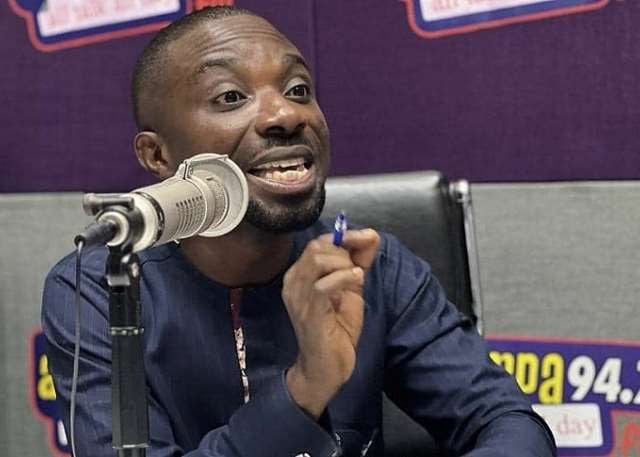The political landscape in Ghana is embroiled in a heated debate over the government’s handling of illegal mining, locally known as galamsey. Miracles Aboagye, Communications Director for the 2024 NPP flagbearer campaign, has launched a scathing attack on the ruling NDC, accusing them of misleading Ghanaians with grand promises to combat galamsey while in opposition, only to retreat from those commitments after assuming power. Aboagye’s criticisms stem from recent remarks made by Minister of Government Communications, Felix Kwakye Ofosu, who characterized the fight against galamsey as a “lifelong battle,” seemingly tempering expectations of a swift resolution. This stance has been interpreted by the opposition as a backpedal from earlier, more assertive pronouncements, prompting accusations of deception and a lack of genuine commitment to tackling the issue.
Aboagye’s social media post, branding the NDC as having “scammed an entire country,” underscores the deep-seated skepticism surrounding the government’s approach to galamsey. He points to the stark contrast between Kwakye Ofosu’s current rhetoric and his previous pronouncements, where he urged Ghanaians to vote against the NPP if they desired a serious effort to eradicate illegal mining. This shift in messaging has fueled allegations of political expediency, with the opposition suggesting that the NDC’s pre-election pronouncements were mere campaign rhetoric designed to garner votes, lacking a genuine intention to follow through. The controversy highlights the complex political dynamics surrounding galamsey, an issue with far-reaching environmental and economic consequences for Ghana.
Adding fuel to the fire is Kwakye Ofosu’s recent assertion that the fight against galamsey should be viewed as an ongoing national endeavor rather than one bound by specific timelines. While advocating for sustained vigilance and consistent action against offenders, this perspective has drawn criticism for seemingly downplaying the urgency of the situation. Opponents argue that framing the issue as a perpetual struggle risks normalizing illegal mining and diminishing the government’s responsibility to implement decisive measures. The debate centers on the balance between acknowledging the long-term nature of the challenge and demonstrating a clear commitment to achieving tangible progress in curbing galamsey’s devastating effects.
The crux of the contention revolves around accusations of complicity within the government and ruling party. Kwakye Ofosu previously alleged the involvement of prominent NPP figures in galamsey operations, citing it as a significant source of party funding and a primary reason for their perceived reluctance to effectively combat the problem. He referenced a leaked tape purportedly featuring Professor Frimpong-Boateng, former Minister for Environment, Science, Technology and Innovation, making similar allegations. These claims have further intensified the political battle, casting a shadow of suspicion over the government’s commitment and raising questions about the extent to which vested interests might be hindering progress in the fight against illegal mining.
The ongoing exchange between the NPP and the NDC reveals the deep political divisions surrounding galamsey. Aboagye’s accusations of deception and Kwakye Ofosu’s evolving narrative contribute to a climate of distrust and skepticism regarding the government’s true intentions. The conflicting perspectives on the urgency and feasibility of eradicating illegal mining further complicate the issue. The debate underscores the challenges faced by Ghana in addressing this complex problem, where political maneuvering and accusations of vested interests often overshadow the urgent need for effective solutions.
Ultimately, the effectiveness of Ghana’s efforts to combat galamsey will depend on the government’s ability to transcend political rhetoric and demonstrate a genuine commitment to tackling the root causes of the problem. This requires a comprehensive approach that includes strengthening regulatory frameworks, enhancing enforcement capabilities, promoting sustainable livelihoods for those involved in illegal mining, and fostering greater transparency and accountability within the government and relevant agencies. The current political wrangling threatens to derail these efforts, emphasizing the need for a bipartisan approach that prioritizes the long-term well-being of the country over partisan gains.


